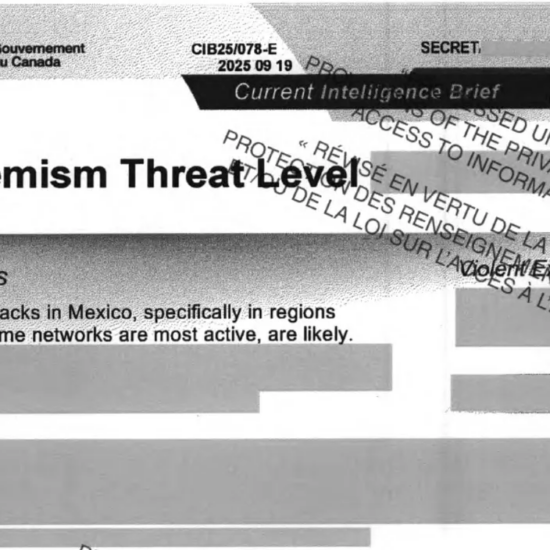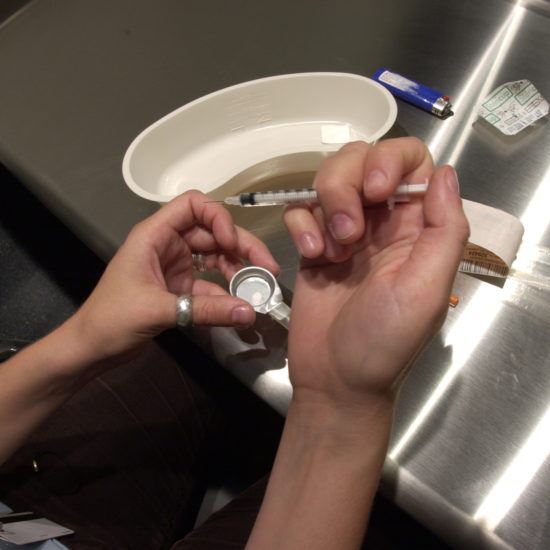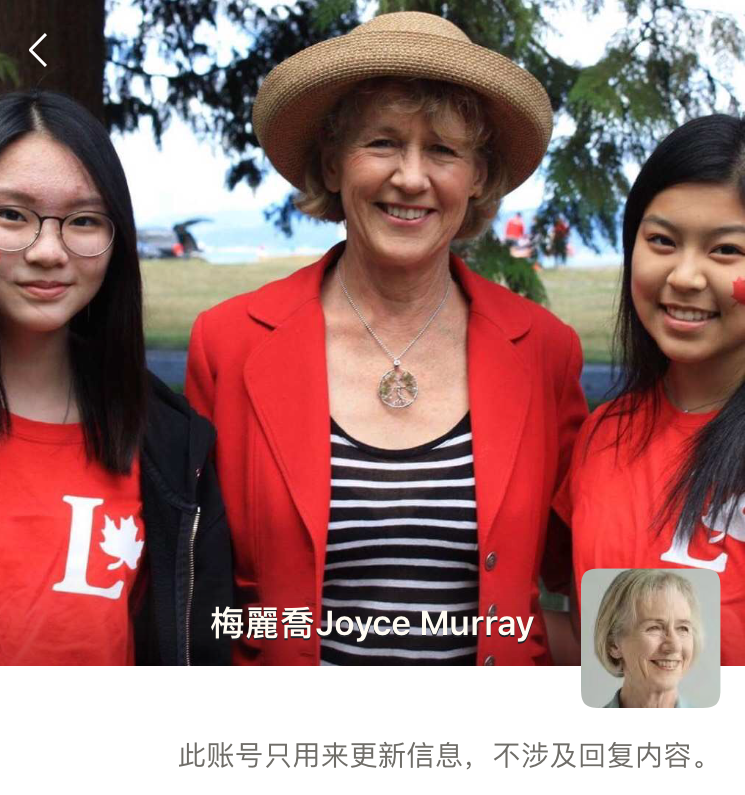
Bob Mackin (updated Oct. 20)
Justin Trudeau’s March-appointed minister of digital government denies she is paying to advertise for her re-election on the WeChat social media and payment platform, despite an official warning by the House of Commons security department not to use the China-based smartphone app.
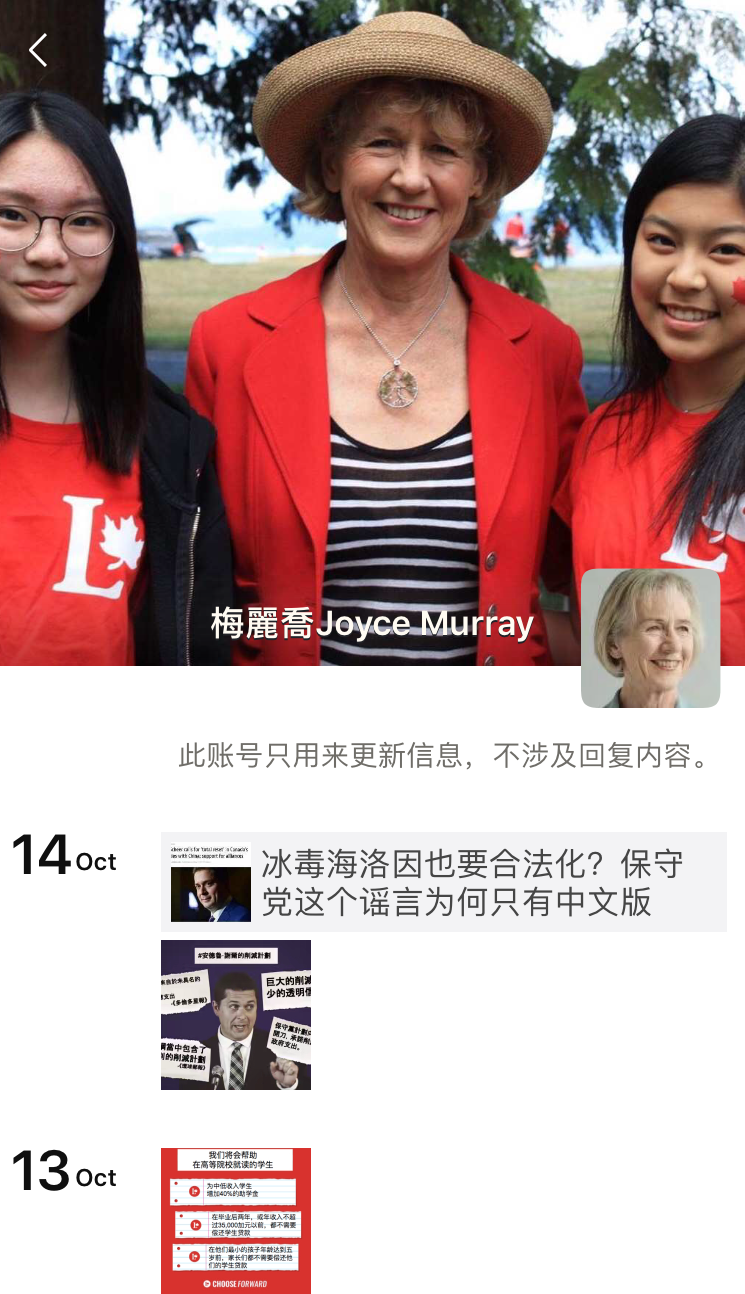
Joyce Murray, the Trudeau Liberals’ minister of digital government (WeChat)
theBreaker.news has learned that Vancouver Quadra Liberal incumbent Joyce Murray has her own account on the China state-censored platform as well as an account for her supporters. Both accounts carry images promoting the Liberal Party in the Oct. 21 election and attacking Andrew Scheer and the Conservatives. Some of the ads include the “authorized by the official agent” tagline required by Elections Canada.
It is not known how much the party spent to create and place the ads; unlike Twitter and Facebook, there is no proactive disclosure or political advertising registry on Tencent-owned WeChat. Through her spokesman, Jonathan Robinson, Murray said her campaign is not engaged in paid advertising on WeChat.
Although advertising is commonly associated with payment for display of content, the Oxford dictionary defines advertisement as “a notice or announcement in a public medium promoting a product, service, or event or publicizing a job vacancy.” Elections Canada rules deal with regulated advertising, which does not include messages and content on a political entity’s own website or on free websites.
In the wake of his SNC-Lavalin scandal, Trudeau named Murray the treasury board president and minister of digital government in a cabinet shuffle last March. She is not the only Liberal using WeChat. Trudeau has an account. As does Scarborough-Agincourt incumbent Jean Yip. Yip posts similar ads that also contain the authorized by the official agent tagline.
The existence of Liberal Party ads on WeChat appears to contradict part of an Oct. 14 CBC report that questioned the veracity of Conservative Party Chinese ads on WeChat that claim Trudeau wants to legalize hard drugs. The CBC story said the Liberals denied using WeChat in their social media advertising mix. CBC also quoted spokeswoman for WeChat, Linda Kennedy, saying that “WeChat does not accept or support political ads on its platform.”
A statement received by theBreaker.news from Tencent’s Hong Kong public relations contractor Edelman claims WeChat does not accept or sell political ads on its platform and the company denies that posts which discuss political topics are ads placed on WeChat.
Myriam Croussette of the Office of the Commissioner of Canada Elections said the Canada Elections Act requires online platforms to keep and publish a digital registry of all regulated ads. Parties that buy ads online “must also disclose all election advertising expenses and ensure that the ads themselves contain the proper authorization statement (tagline),” Croussette told theBreaker.news.
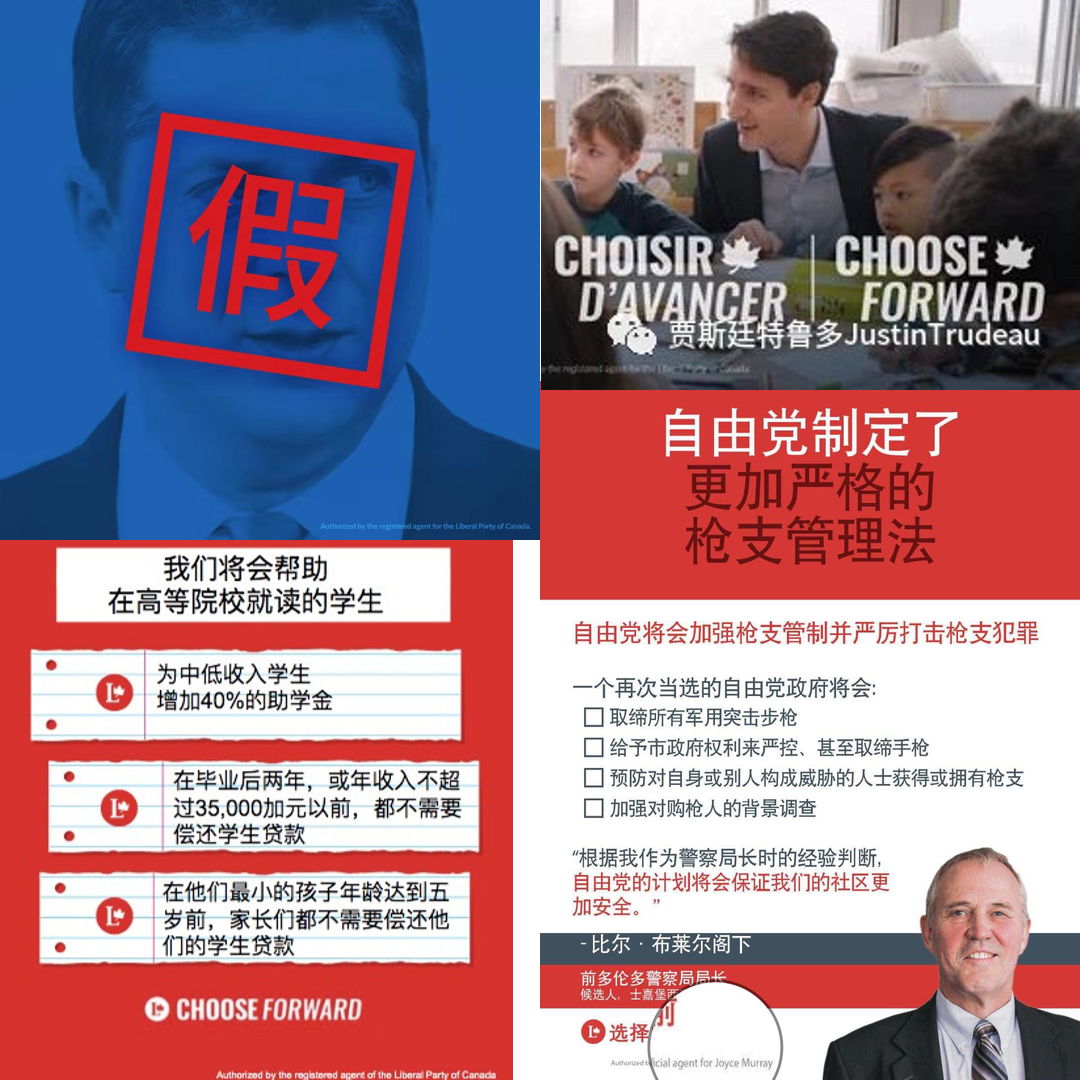
Liberal Party WeChat ads calling Andrew Scheer fake (upper left) and promising gun control (lower right).
The threshold for registry provisions to apply to platforms mainly in a language other than English or French is 100,000 unique visitors in Canada per month, she said. MediaInCanada estimated 750,000 WeChat users in Canada.
“In the event of a complaint, the Commissioner of Canada Elections reviews all information received by his office to determine whether the issue falls within his compliance and enforcement mandate,” Croussette wrote. “Cases involving entities outside of Canada can be investigated and there are legal mechanisms that can assist the Commissioner in this work (ex. mutual legal assistance treaties).”
It is not known how many Canadian users are among the more than 1 billion around the world who use WeChat. But Chinese-speaking voters are obviously vitally important for the Liberal Party in the Oct. 21 election, especially in Toronto and Vancouver-area ridings. The 2016 Census found a Chinese language is the mother tongue of 408,000 people in B.C., primarily Cantonese (193,530) and Mandarin (186,325). Nationwide, the number is 1.25 million.
Murray’s supporters’ group on WeChat is followed by more than 200 individuals and organizations. One of them is the taxpayer-funded Liberal Research Bureau.
Last July, House of Commons cybersecurity staff sent a memo to Members of Parliament, staff and administration, warning them not to use WeChat for business or sensitive communications.

Joyce Murray WeChat ad
“Communications sent via the WeChat application are not encrypted, leaving users vulnerable to interception and unauthorized dissemination,” the memo said. “Additionally, messages continue to reside on servers even after users have deleted them, with information pertaining to users’ locations saved as well. These servers are located outside of Canada and so are not subject to Canadian privacy laws. Rigorous protections of user data cannot be assured.”
A message on WeChat earlier this year forced Burnaby South Liberal candidate Karen Wang to quit the race. She posted a message that boasted of being the only Chinese-Canadian on the ballot and referred to NDP leader Jagmeet Singh, the eventual victor, as “of Indian descent.” Zhou Fengsuo, a survivor of the 1989 Tiananmen Square protests, told theBreaker.news in an interview that WeChat has become a powerful tool of the Chinese government to organize and finance Communist Party influence activities outside China. WeChat was employed in August to organize pro-China rallies in Vancouver. Some users threatened violence against those advocating for democracy in Hong Kong.
Last fall, the Richmond-based Canada Wenzhou Friendship Society, an affiliate of the Chinese Communist Party’s United Front foreign influence program, offered a $20 “transportation subsidy” so that its WeChat group members would vote in municipal elections in Vancouver, Burnaby and Richmond for a slate of endorsed candidates.
Amid questions about vote buying, the offer was withdrawn. The RCMP investigated, but did not recommend charges.
The WeChat Pay digital wallet has become a major rival to western payment card companies and caused concern among law enforcement. In his 2019 Dirty Money report for the B.C. NDP government, former RCMP senior officer Peter German noted how WeChat Pay is highly popular at money service bureaus and luxury car dealerships in B.C. He warned that “underground bankers now rely on WeChat and other modern means by which to communicate the movement of money.”
Support theBreaker.news for as low as $2 a month on Patreon. Find out how. Click here.







